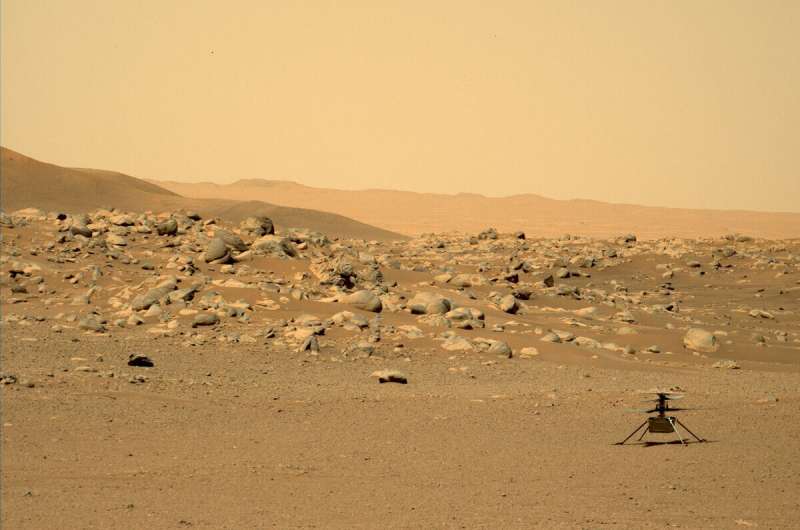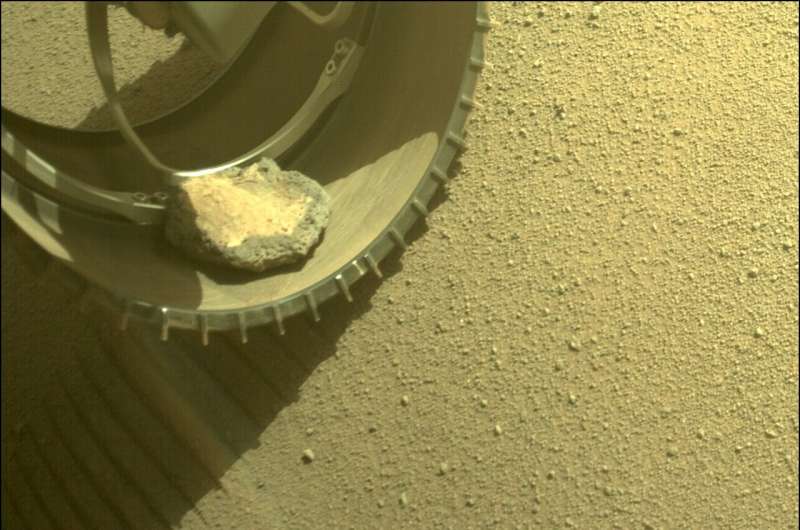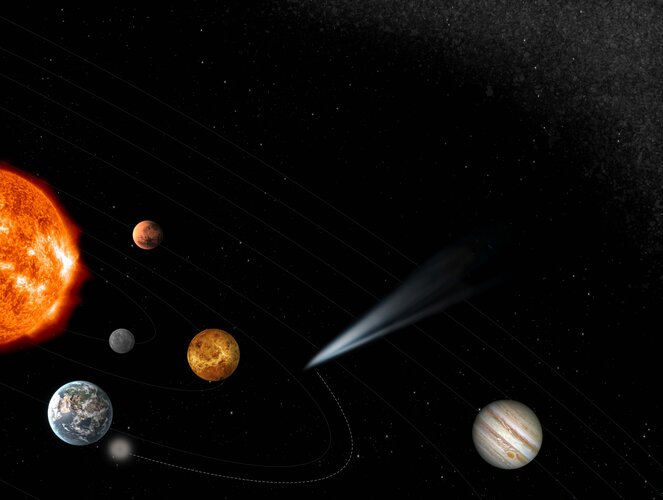
Copernical Team
Abell 2146: Colossal Collisions Linked to Solar System Science
 A new study shows a deep connection between some of the largest, most energetic events in the Universe and much smaller, weaker ones powered by our own Sun.
The results come from a long observation with NASA's Chandra X-ray Observatory of Abell 2146, a pair of colliding galaxy clusters located about 2.8 billion light years from Earth. The new study was led by Helen Russell of the Universit
A new study shows a deep connection between some of the largest, most energetic events in the Universe and much smaller, weaker ones powered by our own Sun.
The results come from a long observation with NASA's Chandra X-ray Observatory of Abell 2146, a pair of colliding galaxy clusters located about 2.8 billion light years from Earth. The new study was led by Helen Russell of the Universit Colossal Collisions Linked to Solar System Science
 A new study shows a deep connection between some of the largest, most energetic events in the Universe and much smaller, weaker ones powered by our own Sun.
The results come from a long observation with NASA's Chandra X-ray Observatory of Abell 2146, a pair of colliding galaxy clusters located about 2.8 billion light years from Earth. The new study was led by Helen Russell of the Universit
A new study shows a deep connection between some of the largest, most energetic events in the Universe and much smaller, weaker ones powered by our own Sun.
The results come from a long observation with NASA's Chandra X-ray Observatory of Abell 2146, a pair of colliding galaxy clusters located about 2.8 billion light years from Earth. The new study was led by Helen Russell of the Universit CIRCE space weather suite announced for first UK satellite launch
 The Defence Science and Technology Laboratory's (Dstl) miniaturised space weather instrumentation suite will be one of the payloads aboard Virgin Orbit which is targeting the first UK satellite launch this summer from Spaceport Cornwall in Newquay. Virgin Orbit's Launcher One rocket takes off horizontally, carried aloft by a modified Boeing 747 jet, named Cosmic Girl.
The Coordinated Ionos
The Defence Science and Technology Laboratory's (Dstl) miniaturised space weather instrumentation suite will be one of the payloads aboard Virgin Orbit which is targeting the first UK satellite launch this summer from Spaceport Cornwall in Newquay. Virgin Orbit's Launcher One rocket takes off horizontally, carried aloft by a modified Boeing 747 jet, named Cosmic Girl.
The Coordinated Ionos NRL CIRCE spacecraft to be part of historic UK launch
 A joint U.S. Naval Research Laboratory (NRL)/ U.K. Defence Science and Technology Laboratory (Dstl) experiment is preparing to measure Earth's ionosphere and particle radiation environment as part of the Coordinated Ionospheric Reconstruction CubeSat Experiment (CIRCE) mission.
Space Systems Command is partnering with Virgin Orbit National Systems, a U.S.-incorporated, wholly-owned subsidi
A joint U.S. Naval Research Laboratory (NRL)/ U.K. Defence Science and Technology Laboratory (Dstl) experiment is preparing to measure Earth's ionosphere and particle radiation environment as part of the Coordinated Ionospheric Reconstruction CubeSat Experiment (CIRCE) mission.
Space Systems Command is partnering with Virgin Orbit National Systems, a U.S.-incorporated, wholly-owned subsidi Dragon Mission on Hold as Astronauts Conduct Eye Exams, Spacesuit Work
 NASA and SpaceX are standing down from this week's Falcon 9 launch of the CRS-25 cargo mission to the International Space Station. Officials from NASA and SpaceX met today to discuss an issue identified over the weekend and the best path forward.
During propellant loading of the Dragon spacecraft, elevated vapor readings of mono-methyl hydrazine (MMH) were measured in an isolated region of
NASA and SpaceX are standing down from this week's Falcon 9 launch of the CRS-25 cargo mission to the International Space Station. Officials from NASA and SpaceX met today to discuss an issue identified over the weekend and the best path forward.
During propellant loading of the Dragon spacecraft, elevated vapor readings of mono-methyl hydrazine (MMH) were measured in an isolated region of UK and US to launch Joint Mission Aboard UK's first Virgin Orbit orbital flight
 Satellite launch company Virgin Orbit (Nasdaq: VORB) announces today that a joint mission between the United Kingdom's Defense Science and Technology Laboratory and the United States Naval Research Laboratory (NRL) is expected to be lofted on the first space launch out of Spaceport Cornwall later this year.
The government agencies' joint Coordinated Ionospheric Reconstruction CubeSat Exper
Satellite launch company Virgin Orbit (Nasdaq: VORB) announces today that a joint mission between the United Kingdom's Defense Science and Technology Laboratory and the United States Naval Research Laboratory (NRL) is expected to be lofted on the first space launch out of Spaceport Cornwall later this year.
The government agencies' joint Coordinated Ionospheric Reconstruction CubeSat Exper Keeping Our Sense of Direction: Dealing With a Dead Sensor
 As the season has turned to winter in Jezero Crater, conditions have become increasingly challenging for Ingenuity, which was designed for a short flight-test campaign during the much warmer Martian spring. Increased amounts of dust in the atmosphere, combined with lower daytime temperatures and shorter days, have impacted Ingenuity's energy budget to the point where it is unable to keep itself
As the season has turned to winter in Jezero Crater, conditions have become increasingly challenging for Ingenuity, which was designed for a short flight-test campaign during the much warmer Martian spring. Increased amounts of dust in the atmosphere, combined with lower daytime temperatures and shorter days, have impacted Ingenuity's energy budget to the point where it is unable to keep itself NASA's Mars helicopter Ingenuity needs a patch to keep flying after sensor failure

NASA's Mars helicopter Ingenuity has suffered a sensor failure, according to Håvard Grip, the chief helicopter pilot on the project. In a recent blog post on the NASA Science page, he described some of the challenges the tiny robot is experiencing in the harsh environment and also noted that a sensor failure is going to require a computer patch.
Perseverance has a pet rock

How do you choose a rock on Mars? Sometimes you don't—it chooses you.
For the past four months, Perseverance has had an unexpected traveling companion. Back on sol 341—that's over 100 sols ago, in early February—a rock found its way into the rover's front left wheel, and since hitching a ride, it's been transported more than 5.3 miles (8.5 km). This rock isn't doing any damage to the wheel, but throughout its (no doubt bumpy!) journey, it has clung on and made periodic appearances in our left Hazcam images.
This is not the first time a rock has hitched a ride on a Mars rover mission.
Comet Interceptor approved for construction

ESA’s Comet Interceptor mission to visit a pristine comet or other interstellar object just starting its journey into the inner Solar System has been ‘adopted’ this week; the study phase is complete and, following selection of the spacecraft prime contractor, work will soon begin to build the mission.
































